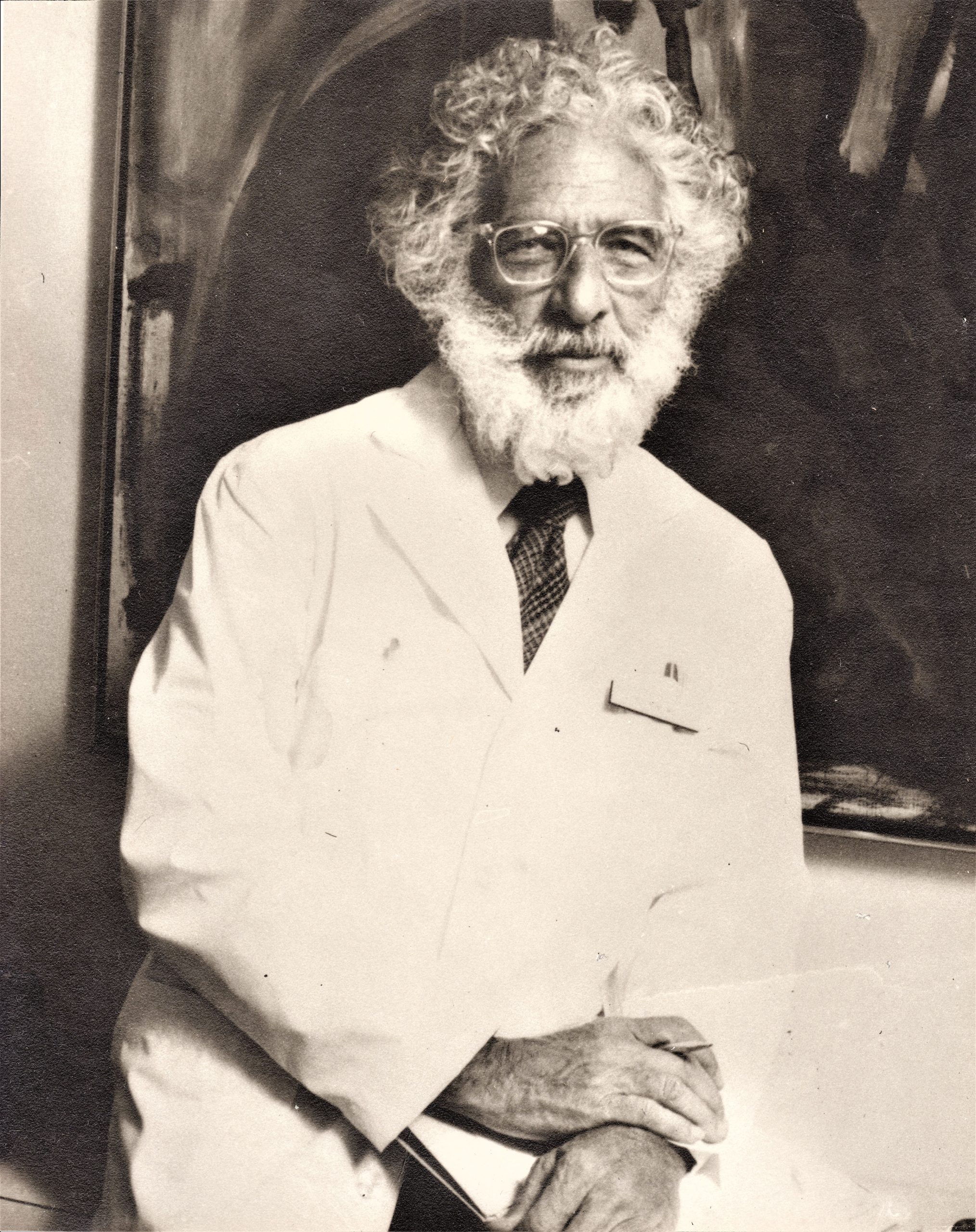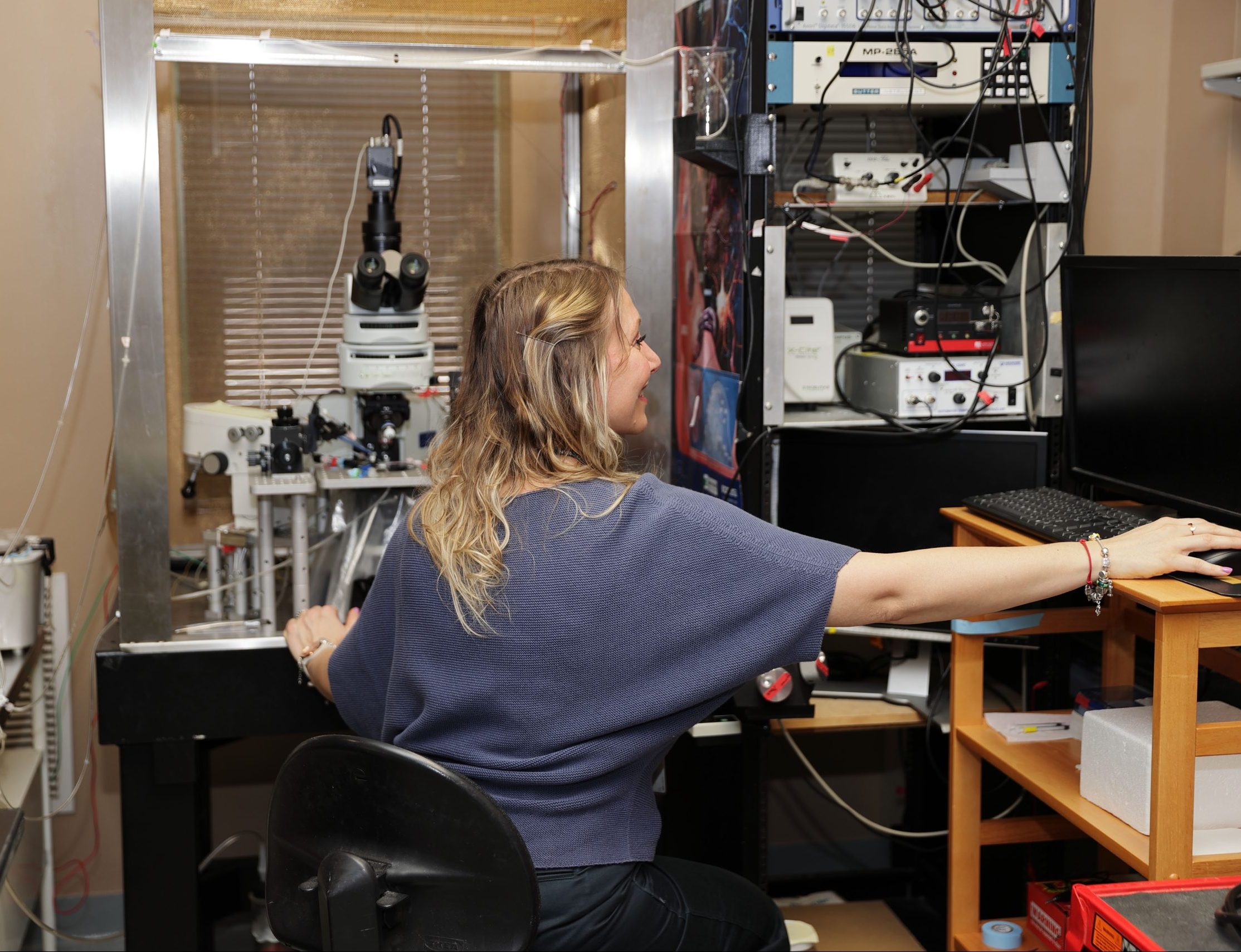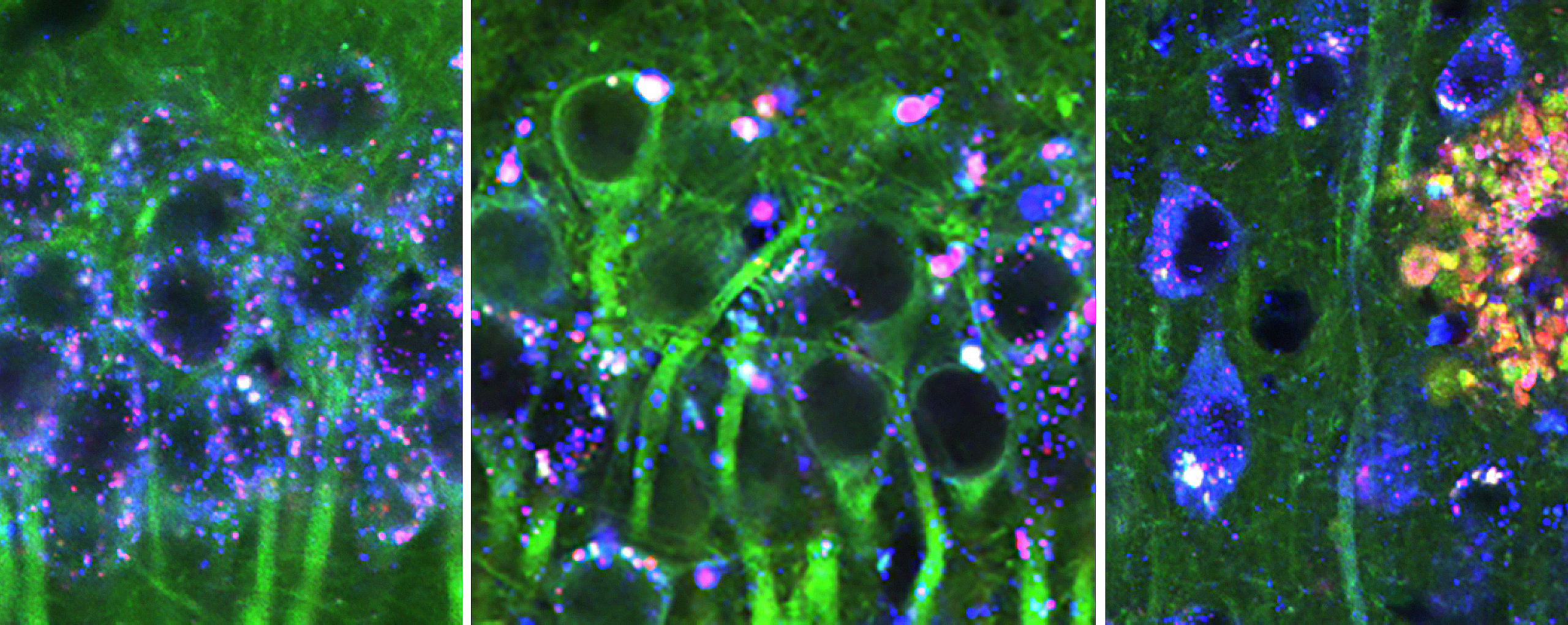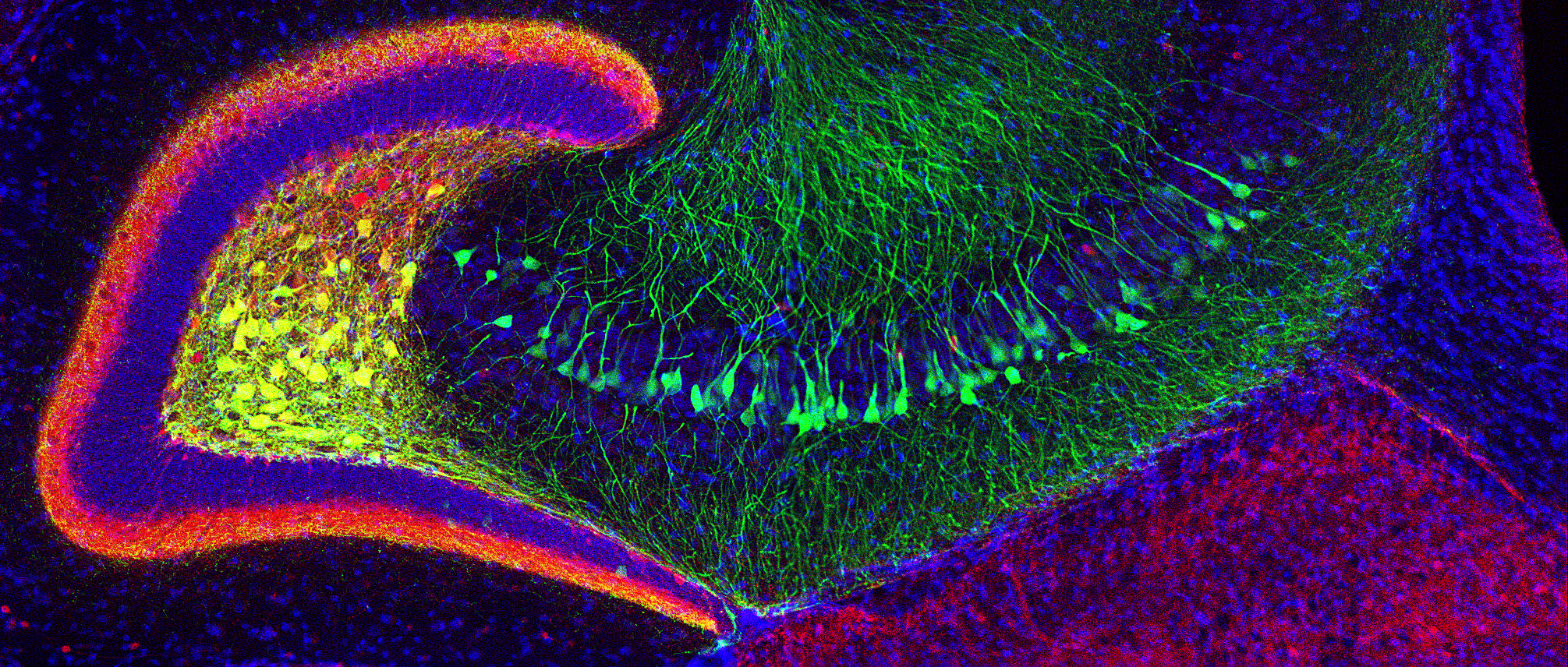About the CDR
The Center for Dementia Research (CDR) is a consortium of independent laboratories and research programs at the Nathan Kline Institute for Psychiatric Research (NKI). Directed by Ralph A. Nixon, M.D., Ph.D., the CDR comprises a faculty of 10 NIH-funded Principal Investigators and a staff of over 50 scientists and is dedicated to study the pathogenesis, diagnosis, and treatment of AD and other major neurodegenerative diseases. Affiliated with New York University Grossman School of Medicine (NYUGSoM), NKI is one of two major institutes for psychiatric research supported in part by the Office of Mental Health of the State of New York.
In the 20 years since its establishment at NKI, the CDR has rapidly become an internationally recognized research center, drawing talented and highly respected researchers, technical staff and trainees worldwide, and bringing millions of federal dollars annually to New York to help support its mission. For their work, CDR researchers have received the highest awards bestowed by the National Institutes for Health, the National Alzheimer’s Association, and other organizations and publish in the most prestigious journals in science (Cell, PNAS, Nature, Science, Neuron, and others). To learn more about the research performed at our laboratories, please visit our Research page.
Our History

Our History
Named after Nathan Kline, M.D. (1916-1983), best known for his pioneering work with psychopharmacologic drugs, the Nathan S. Kline Institute for Psychiatric Research was established in 1952, when Dr. Kline and associates opened a research unit at the then Rockland State Hospital, now Rockland Psychiatric Center. This developed into the freestanding Rockland Research Institute, and upon Kline’s death in 1983, the Institute was renamed in memory of Dr. Kline. Kline’s work, utilizing reserpine and iproniazid to treat psychiatric disorders, has been acknowledged as a major factor in opening a new era in psychiatry.
For his studies with tranquilizers and antidepressants, he was twice awarded the prestigious Albert Lasker Medical Research Award. Dr. Kline’s reputation drew biomedical researchers from around the world.
Psychopharmacology was emphasized and many new drugs were given clinical trials, as well as investigations of the safety and utility of long-term drug use. Laboratory techniques were developed to determine safe, effective doses of frequently used medications. Kline foresaw the potential of applying computer technology to psychiatry, believing that it could be used in large scale epidemiological studies and could streamline the administration of complex health facilities. He oversaw the installation at Rockland in 1968 of a major computer center, funded by the Federal government, and guided the development of computerized medical systems, many of which led to improvements in the quality of patient care.
As an advisor to international health agencies such as the World Health Organization (WHO) and CARE-Medco, Kline was aware of the dearth of medical treatment for mental disorders in developing countries. He traveled widely and devoted much time to establishing and visiting mental health clinics and programs in other parts of the world.
Research
Careers

Careers
The CDR is strongly committed to educating and nurturing scientists through our postdoctoral research program. We provide a range of training opportunities in basic and translational neuroscience, psychiatric research, and cross-disciplinary collaborative research.
Equality & Inclusion

Equality & Inclusion
We strongly believe in helping future researchers gain the experience, skills, and credentials needed to join a new generation of scientific leaders. Postdoctoral researchers work alongside some of the leading scientists in brain aging research at NKI and NYU. They are an integral part of our basic science discovery process and work in our labs as part of an integrated team.














